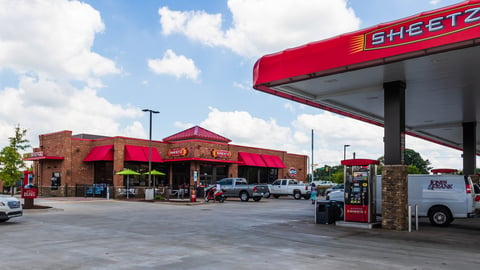New Report Highlights Growing Gen Z Impact On Private Label
Generation Z is a much-talked-about consumer group that is having a significant impact on the retail marketplace, with its influence expected to grow in the coming years.
The segment of shoppers born between 1997 and 2012 is also playing a significant role on the growth of private label, according to a new report from Numerator, which noted Gen Z is "rewriting the private label playbook."
While value remains the main focal point broadly for shoppers when they choose to purchase private label products, there are notable differences with Gen Z. Data from Numerator highlights four dimensions where shoppers in this group are more than 50% more likely than other generations to diverge:
- Discovery: Social media platforms such as TikTok and Instagram, often guided by influencers, are becoming the primary on-ramps to new private label products.
- Drivers: Packaging design and transparent labeling are essential, not optional. These elements carry more weight for Gen Z than for any other age group.
- Perception: Store brands are seen as trendy, innovative and increasingly premium as the old stigma fades.
- Values: Sustainability and "better-for-you" claims play a central role in decision-making.
“These trends are a signal to the market: winning younger consumers requires more than low prices. Meaning, aesthetics, and intention matter just as much,” Numerator said in its report.
The past six years have also seen Gen Z and their Millennial counterparts increase their spending on private label products at a greater rate than Generation X and Baby Boomers. Today, Gen Z and Millennials spend, respectively, 30% and 32% of their total dollars on premium-tier private label products, up 5% since 2019 for both generations.
By comparison, Gen X and Boomers have increased their respective purchasing of private label products by 3% over the same period.
This spending increase on private brand products by the four generations comes at a time when the price gap between private brands and national brands has widened by 38% since 2019. This has made it easier for consumers to stick with store brands and even trade up within private label, all while spending less overall, Numerator said.
There are also distinct differences in where shoppers across the generations are buying private brand products. Numerator data shows Baby Boomers favor own brands at Lowe’s and Harbor Freight, which reflects this group's high rate of homeownership. The top store brand choices for Gen Xers include products at convenience stores Kwik Trip and Wawa.
For Gen Z and Millennials, store brands such as Ulta Beauty, Wild Fable, Cat & Jack, Costco’s Kirkland Signature and Trader Joe’s are among the most popular. Numerator notes in its report that these private labels aren't placeholders for national brands; they are purposeful choices that blend style, value and identity.
With U.S. consumers across all demographics more accepting today of private label products, there remains room for further growth. Numerator’s global data shows that store brand development in the U.S. remains less than half the level seen in European markets such as the United Kingdom, France and Spain.
With future growth in mind, Numerator figures show retailers need to continue working to show consumers, most notably Gen Z and Millennials, that the value of private label products is as good as or better than national brands.
With Gen Z shoppers, 46% said private label products offer a better value than national brands, with 27% choosing national brands. Half of Millennials see store brands as a better value than national brands, with 24% choosing national brands. Gen X (55%) and Boomers (60%) are more convinced of the value own brand products offer.




